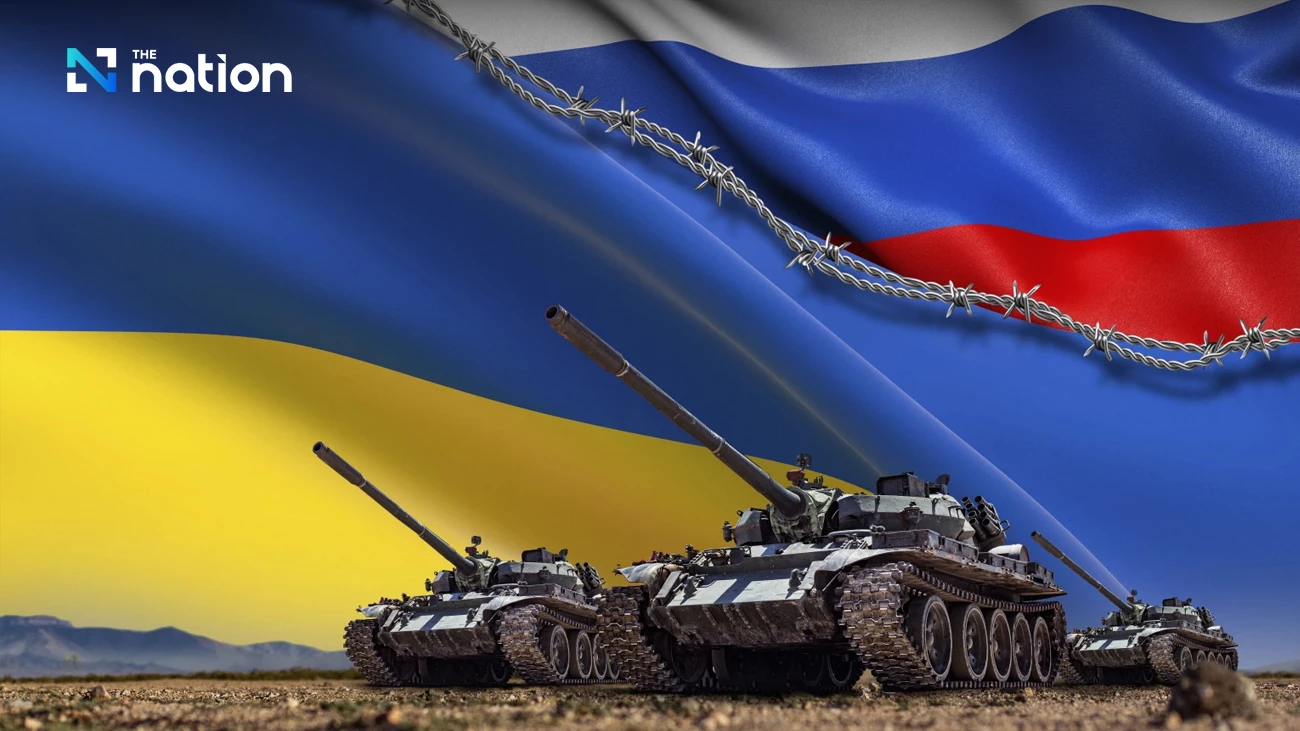
Trade Policy and Strategy Office (TPSO) closely monitors the third anniversary of the Russia-Ukraine war, emphasizing that if the conflict ends, it could boost Thailand's trade and investment opportunities with Russia and the Eurasian Economic Union (EAEU).
Poonpong Naiyanapakorn, Director of TPSO, revealed that the Russia-Ukraine war, which has lasted for three years since Russia launched its military operation in Ukraine on February 24, 2022, is approaching a critical turning point. This follows the return of Donald Trump as President of the United States, who has accelerated efforts to pave the way for peace negotiations. There is growing hope that the potential resolution of the conflict will contribute to the recovery of global trade and the economy in the near future.

The Russia-Ukraine war has had both direct and indirect impacts on the global and Thai economies. The global economy has faced an energy price crisis, prolonged inflation, and persistently high interest rates due to the conflict in Ukraine and economic sanctions, which have disrupted supply chains for agricultural products, commodities, and contributed to global energy price volatility.
The global economy experienced weak growth during 2022–2024, expanding by 3.6%, 3.3%, and 3.2%, respectively—a sharp slowdown from the 6.6% growth in 2021. These figures remain below the pre-COVID-19 decade average (2000–2019) of 3.8%. Similarly, Thailand's economy also slowed in 2023, in line with global economic conditions, while exports contracted for the first time in three years due to tight monetary policies in various countries, which exerted pressure on the overall economy.
Poonpong stated that after three years of war, there is now hope that the Russia-Ukraine conflict could end within this year. The first major sign of optimism is the return of Donald Trump as US President in late January 2025, as he has pledged to take swift action to end the war in Ukraine. This led to the first official face-to-face discussions between senior US and Russian government officials in Riyadh, Saudi Arabia, on February 18, 2025.
Regarding the approach to ending the Russia-Ukraine war, both sides agreed to restore diplomatic missions and work together toward negotiations to end the conflict in Ukraine. They also agreed to establish a high-level working group dedicated to peace talks that could lead to a resolution of the war.
Additionally, the discussions included strengthening cooperation in geopolitical and economic aspects that may emerge after the war ends. Although Ukraine and its European allies were not invited to this meeting, it is believed that the discussions will pave the way for direct peace negotiations between the Russian and Ukrainian presidents in the future.
The second source of hope stems from diplomatic efforts to end the prolonged three-year conflict in Ukraine. A resolution would not only benefit the economies of the directly involved nations but also have positive effects on the global economy. According to an IMF assessment in late 2024, if the war ends by the end of 2025, Ukraine’s economy could rebound with a growth rate of 4%, exceeding the October 2024 forecast of 2.5%. This comes after Ukraine suffered severe economic losses, with its GDP contracting by 28.8% in 2022.

As for Russia, if it agrees to end the war, it is expected that Western nations will gradually ease sanctions, allowing Russia to regain a key role in driving the global economy. This would be particularly significant in helping to revive the European economy, which has been heavily impacted by the food and energy crisis.
Russia has demonstrated economic resilience and the ability to withstand Western sanctions. This is reflected in its economic performance—despite a 1.3% contraction in 2022, the economy rebounded with a growth rate of 3.6% in 2023–2024.
The third source of hope lies in advancing Thailand’s trade and economic interests. Throughout Russia’s economic challenges due to Western sanctions, Thailand’s Ministry of Commerce has consistently worked to foster cooperation and maintain economic and trade relations with Russia.
Thailand has separated geopolitical conflicts among major powers from its trade relations. Despite a sharp 43.4% decline in exports to Russia in 2022 compared to 2021, exports rebounded by 40.5% in 2023 and continued growing by 7.9% in 2024, reaching a value of $885.5 million—nearing pre-war levels.
Meanwhile, although exports to Ukraine have not yet returned to pre-war levels, there are clear signs of recovery, with exports surging by 110.5% in 2024.
The easing of war tensions and Russia’s economic strain presents an opportunity to enhance Thailand-Russia trade and investment. It also supports accelerating negotiations for the Thailand-Eurasian Economic Union (EAEU) FTA, which would open trade and investment with Russia, Belarus, Kazakhstan, Kyrgyzstan, and Armenia—promising new markets for Thailand.
Poonpong stated that regardless of geopolitical crises, whether military conflicts or trade wars, the Ministry of Commerce has closely monitored situations, coordinated with the private sector, and implemented response strategies to mitigate trade impacts. This year, the ministry remains committed to driving trade and investment, confident that Thai exports will meet or exceed targets.


